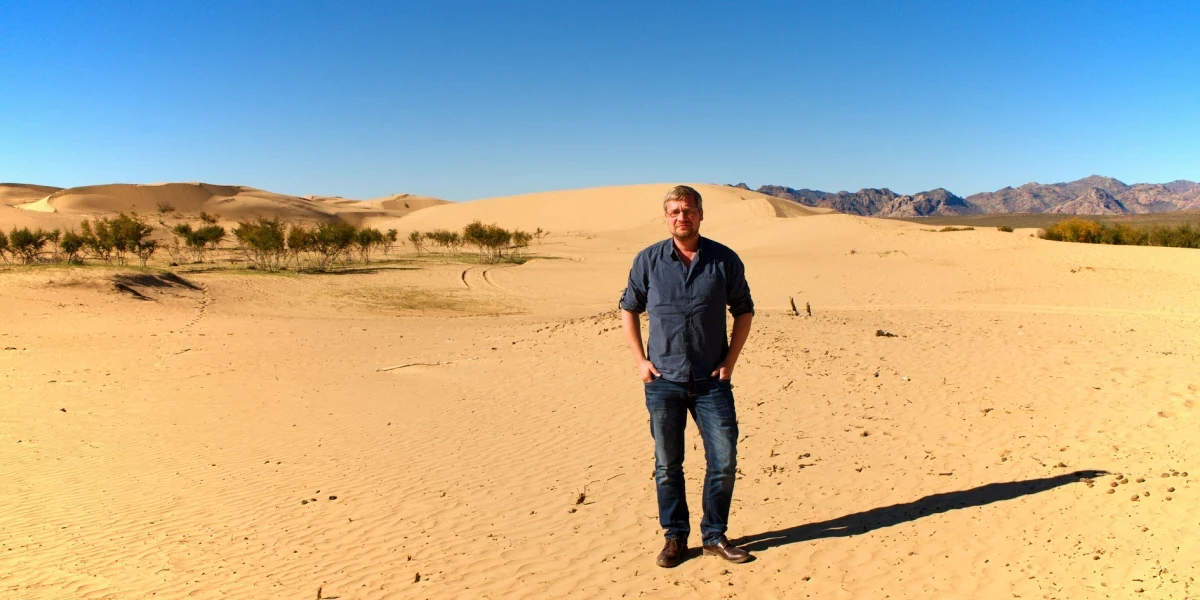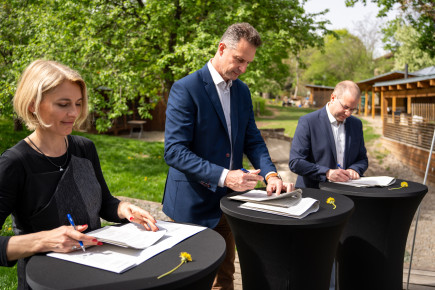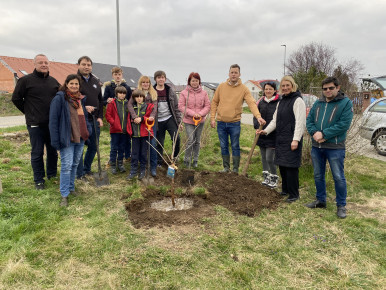Jan Mrkvička: COP27 in distress
Published: Nov 10, 2022 Reading time: 4 minutes Share: Share an articleThe 27th UN Climate Change Conference is currently underway in Sharm el-Sheikh, Egypt. For the first time ever, the topic of financial assistance to countries already severely affected by climate change (Loss & Damage) is at the forefront of the discussion. At People in Need, we have been active in many of these countries for a long time, which is why we are attending the summit this year.

Thirty years ago, 154 countries signed the UN Framework Convention on Climate Change (UNFCCC). Today there are 198 signatories. The goal of the annual COP conferences is nothing less than to "stabilise greenhouse gas concentrations in the atmosphere at a level that would prevent dangerous anthropogenic (i.e., man-made) interference with the climate system". The following article of the Convention then says when this should happen: "This should be achieved within a timeframe sufficient to allow ecosystems to adapt naturally to climate change, to ensure that food production is not compromised and that economic development can proceed in a sustainable manner". In other words, before it is too late.
Read the news on Jan Mrkvička Twitter account.
But it is already largely too late. That is why there is an increasing emphasis on so-called adaptation measures, i.e. efforts to ensure that people everywhere can adapt to irreversible changes and that the environmental impact is as low as possible. Despite acceptance that adaptation measures are needed, we must continue our efforts to reduce greenhouse gas emissions because the range of climate change impacts from 'major' to 'catastrophic' is still quite broad.
Compensations for losses and demages in the foreground
In addition to adaptation, the topic of financial assistance to countries damaged by global warming (Loss & Damage) is on the table for the first time. The idea that there are countries that are already paying for climate change, and those who paying the highest costs are those with the lowest responsibility for creating it. It sounds logical, but the ethical and political implications of admitting this truth are profound.
Further reasons for our attendance come from our work in countries like Ethiopia, Zambia, Mongolia and Cambodia; we have worked in these countries for years to help local communities adapt to change and learn to live in new conditions. We know it can be done. We can, for example, turn places devastated by water and wind erosion into areas where the landscape retains water and forests return. Such work cannot be done without the interest and understanding of local people and institutions, who must become agents of change themselves, and without the subsidies that we take for granted in Europe. There is no money for subsidies in developing countries.
And in countries such as Nepal, the Philippines, Afghanistan, Angola and Mali, we are helping the victims of extreme climatic events. Unfortunately, there is not enough money for this work because aid is seen as something extra, not as payment for the fact that we have spent years pushing climate change as far as we can. And at the same time, we are saying that no one else can follow our western industrial path, which has been paid for by the emission of vast quantities of greenhouse gases. If there were more resources for countries affected by climate change, it would also be possible to invest more in preventing the impact of disasters and in building early warning systems. This, in effect, will save not only human lives but also millions of dollars in humanitarian aid.
Funding for both adaptation and mitigation is still insufficient
However, in 2020, of the USD 83.3 billion earmarked for climate finance, only USD 28.6 billion went to adaptation measures. At COP26, it was agreed to double the funding for adaptation to achieve the desired balance of finance for adaptation and mitigation (emissions reductions), and this has happened. Not to mention that the promised total of USD 100 billion has not even been reached.
In practice, from the perspective of People in Need, this means that funds for meaningful adaptation projects that deliver concrete and clearly measurable results are hard to come by. Yet, unlike pure mitigation investments, these tend to be less costly solutions.
In the light of the new challenges we face, new investments seem utopian. But if we do not, the world will be shaken even more and we are likely to face a migration crisis unlike any we have seen in modern history. It is also important to note that most developing countries do not see themselves as victims and do not wait for salutary help from richer countries. Here at the COP, too, we see many innovations and examples of how local governments in countries suffering from climate change are addressing their situation. But without a concerted effort and the pooling of financial and human resources, no matter where they come from, the worst affected will not get out of the spiral of ever deepening climate change impacts.


